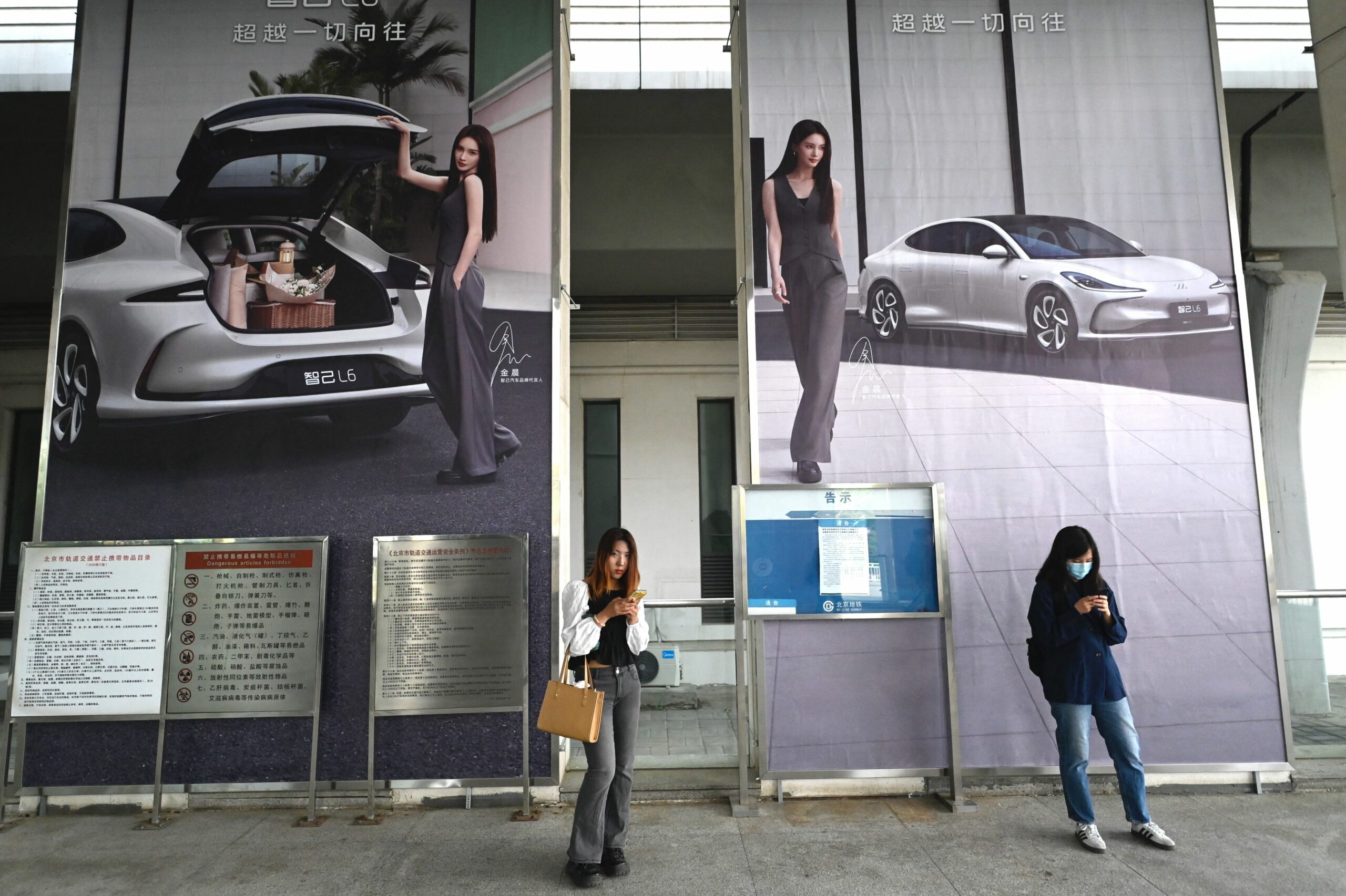
BEIJING (AFP) – Chinese car giants locked in a cut-throat price war descend on the capital for the start of the Auto China show Thursday, vying to draw consumers and headlines in the world’s biggest electric vehicle market and abroad.
China’s EV sector has exploded in recent years, and firms are now engaged in a no-holds-barred battle to offer customers the coolest accessories at the lowest prices.
EV makers from China have made inroads into markets from Europe to Southeast Asia and Tesla’s Elon Musk described them in January as “the most competitive car companies in the world”.
Beijing’s Auto China show, which lasts until May 4, will see dozens of firms square off in a bid to draw customers at one of the country’s biggest car shows.
There are a staggering 129 EV brands in China, but just 20 have managed to achieve a domestic market share of one percent or more, according to data compiled by Bloomberg.
Among the most closely watched firms will be BYD – “Build Your Dreams” – a Shenzhen-based battery and automotive giant that beat Tesla in last year’s fourth quarter to become the world’s top seller of EVs.
Tesla reclaimed that title in the first quarter of this year, but BYD remains firmly on top in its home market.
The firm is expected to unveil its first electric pickup – the BYD Shark – at the event.
The Shark’s price has yet to be disclosed, but BYD has said it will be equipped with the firm’s dedicated off-road technology platform.
Traditional automaking juggernauts – who have struggled to keep up with a surging wave of domestic challengers in recent years – will also be present.
Volkswagen, which last year lost its crown as the best-selling brand in China to BYD, has moved to prevent a sales slide in its most important market.
The German auto giant announced earlier this month that it would invest EUR2.5 billion (USD2.7 billion) to expand a production and innovation hub in the eastern province of Anhui.
It has also invested tens of billions globally in its pivot to EVs, including by taking a minority stake in Chinese automaker XPeng last year.
Rapid growth abroad
Nio – a Shanghai-based manufacturer of premium EVs – will also be at the auto show, hoping it can breathe new life into its business with the unveiling of a 2024 lineup of eight models.
A fresh entrant to the fierce electric market is Xiaomi, a consumer tech giant that last month launched its first EV model, with CEO Lei Jun saying he was putting his “reputation on the line”.
Initial signs are positive: Lei said during a livestream last week that sales of its SU7 had been three to five times higher than expected.
The show also comes in the face of an intensifying price war between EV companies, made all the more competitive as consumer spending slows in China.
On Monday, Beijing-based Li Auto slashed the prices of its models by up to CNY30,000 (USD4,141).
That followed a decision by Tesla in China to lower its prices by 14,000 yuan.
And as competition turbo-charges in China, the rapid expansion of its EV production has raised eyebrows in the West, where regulators fret that an oversupply of cheap Chinese vehicles could outprice local competitors.
Beijing has labelled foreign concerns of overcapacity “groundless”, insisting that the success of its EV sector is down to innovation and advanced supply chains, not subsidies.
But it had long given EV firms a boost, funnelling generous amounts of state cash towards domestic manufacturers and offering purchasing discounts in a bid to spur growth and speed up the shift towards clean-energy cars.
Those central government retail subsidies were phased out in late 2022.
But as firms push aggressively into countries across Europe, Southeast Asia and Latin America, they are increasingly under the spotlight.
The European Union launched an investigation last year into Chinese state EV subsidies, which it said had given companies from the country an “unfair” leg up in the local market.
The probe coincides with reports of Chinese vehicles piling up at European ports, as logistics networks struggle to cope with the surge and local consumers are slow to buy them.
Those headwinds haven’t stopped BYD from launching a future EV factory in Hungary, making it the first Chinese firm to manufacture passenger cars in Europe.
And last week, state-owned Chery signed a deal to produce mainly electric vehicles in Spain.


